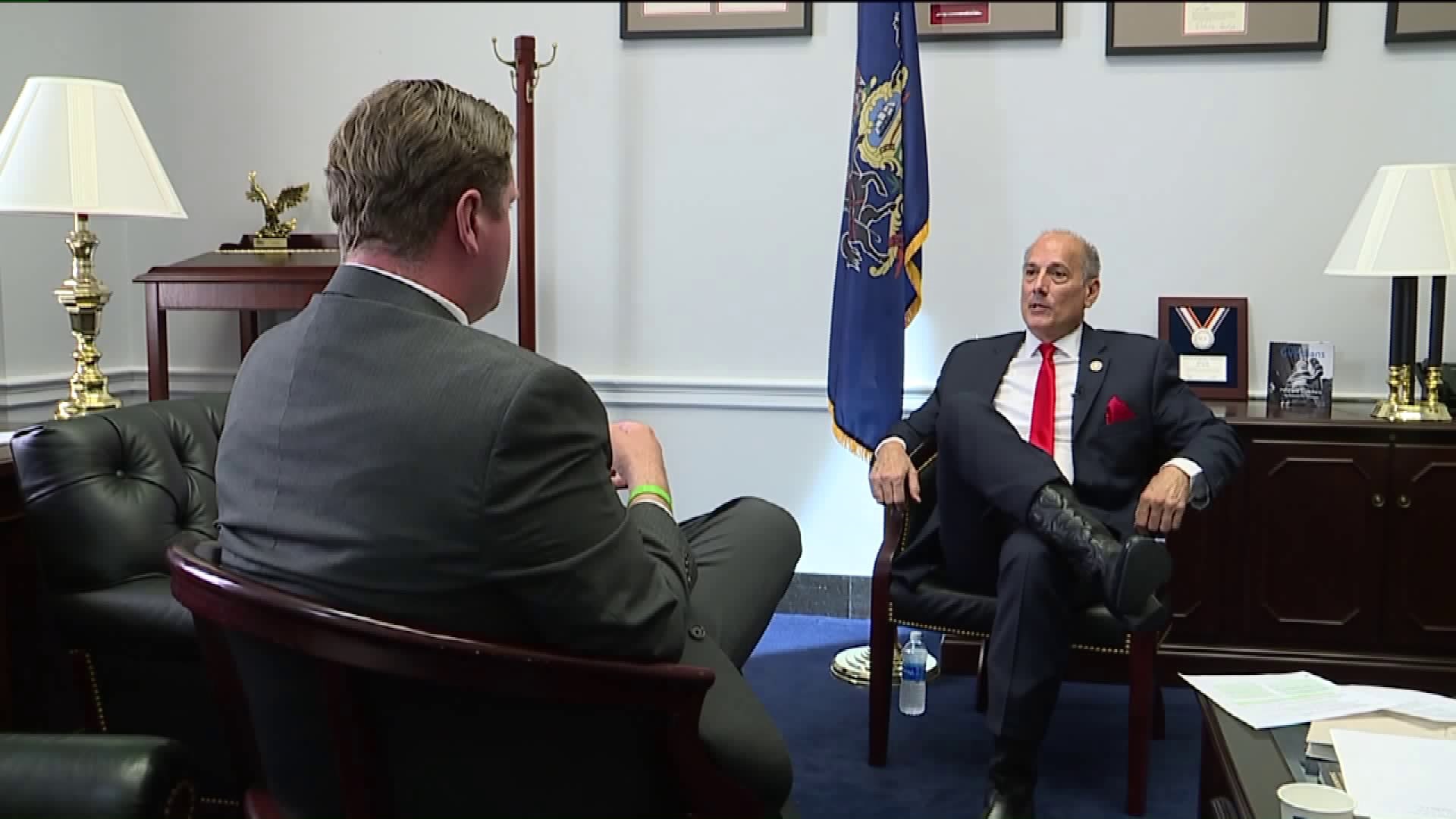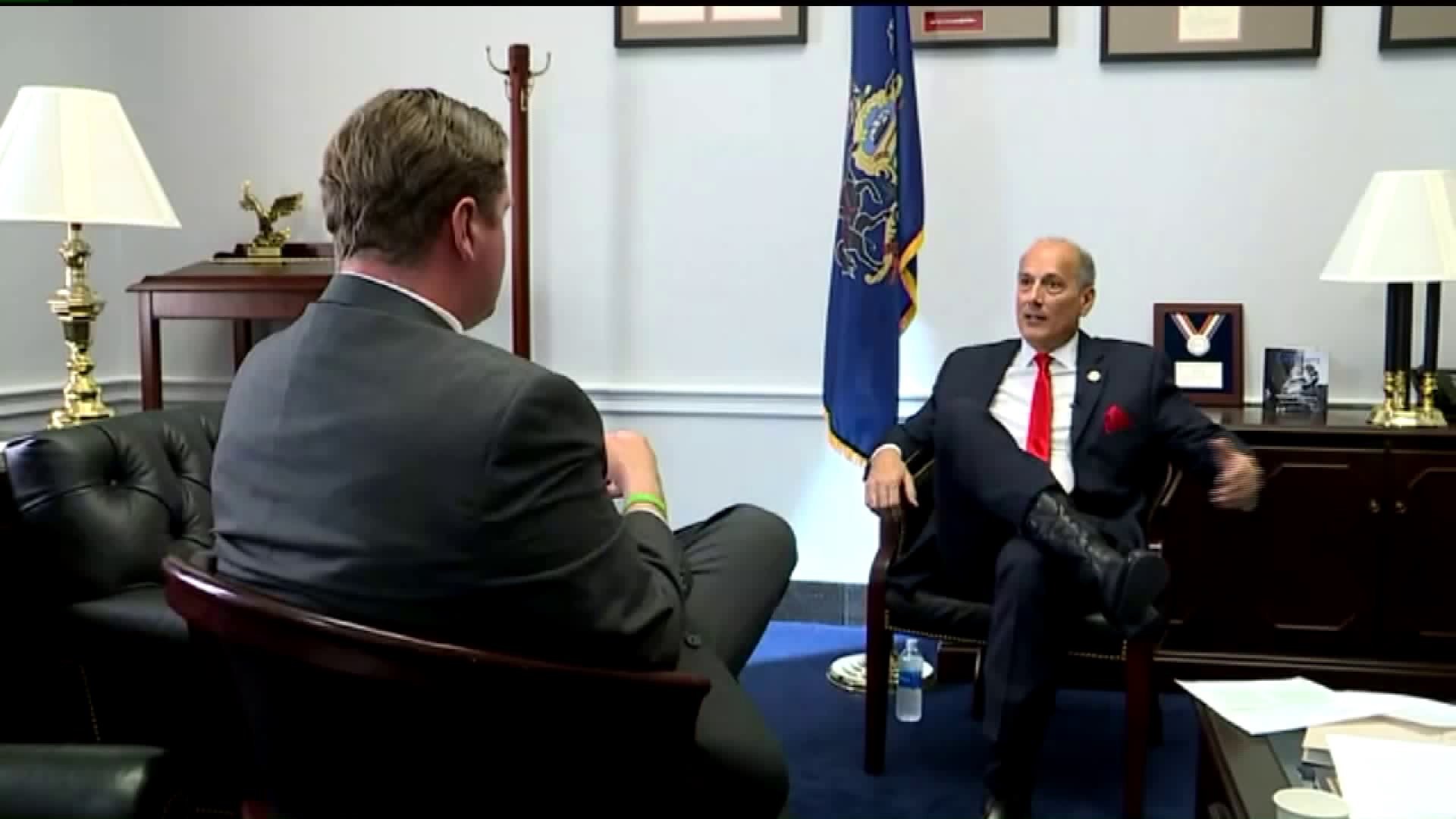WASHINGTON D.C. -- Congressman Tom Marino, the focus of a scathing 60 Minutes/Washington Post report last month spoke for the first time on camera with Newswatch 16 on Thursday.
The Republican from Lycoming County defended his bill that critics say weakened the DEA's ability to stop suspicious amounts of prescription painkillers from getting on the market.
The congressman couldn't be reached immediately after the report aired on 60 Minutes last month. A few days later, he released a statement claiming it was an unbalanced report.
Marino chose not to speak with the Washington Post or CBS News but he did answer some of our questions over why he pushed for the prescription law.
From his office in Washington D.C., Congressman Tom Marino first and foremost wanted to make it clear why he dropped out of the nomination to national drug czar.
"I withdrew my name because I don't want anything to get in the way of bringing this drug epidemic, the opioid epidemic to its knees," said Rep. Tom Marino, (R)10th District.
The Republican is in his fourth term seeking re-election and last month was the focus of a 60 Minutes/Washington Post report about a bill he co-sponsored in 2014 that became law in 2016.
Critics say it hampers the DEA's ability to crack down on companies distributing large, suspicious amounts of opioids, the prescription drugs that are partly blamed for a deadly epidemic claiming lives all over, especially in rural Pennsylvania.
Marino explained what the bill is supposed to do.
"Those who need opioids legitimately for their pain will get it. Those who are abusing it, if the law is followed, whether it's the manufacturer, distributor, whether it's the pharmacy or hospital, or someone running around getting scripts filled -- they will be the ones targeted."
According to the congressman, he heard from pharmacists that patients couldn't get pain meds because the DEA was diverting so many shipments. Marino says it came to light in 2012 but has also been on the record saying it was 2013 and 2014 when the bill was first introduced.
"I think it's 2012 when I got this, there's so many dates and times and it's been so long. This is something that's been out there," Rep. Marino said.
The bill eventually passed in 2016 after some Senate changes. No lawmakers objected and the president signed it into law.
We asked the congressman why didn't he sound an alarm when he first learned in 2012 that there was a problem getting painkillers to patients. He pointed to a cumbersome legislative process:
"It takes quite a while to get legislation done. People think you can put a bit together."
Around the same time, Congressman Marino helped introduced his bill in 2014 to ease the flow of painkillers. The DEA began the process of putting many more restrictions on hydrocodone (more specifically, hydrocodone combination products), or Vicodin, the country's most prescribed opioid, meaning the drug industry's biggest seller by the end of the year would face much tighter restrictions up and down the supply chain. The congressman tells Newswatch 16 he was unaware.
"I never heard that. I never anticipated that, never saw that. It's a good move, just because drugs like that should be more controlled."
In the end, Marino insists with this bill/law he was trying to get the DEA to work more closely with the drug industry, an industry that also happens to make contributions to his campaign in the tens of thousands of dollars.
"I'm always open to listening to someone. I stand by my legislation, it's good law."
As for those pharmacists who Marino says got the whole thing started, the congressman wouldn't tell us who they were out of fear they might face retaliation.
Several lawmakers are calling for a repeal of Marino's legislation. He says there's no need and is awaiting a report from the DEA on what impact the law has had on stopping the flow of opioids that lead to abuse and ultimately thousands of deaths every year.


